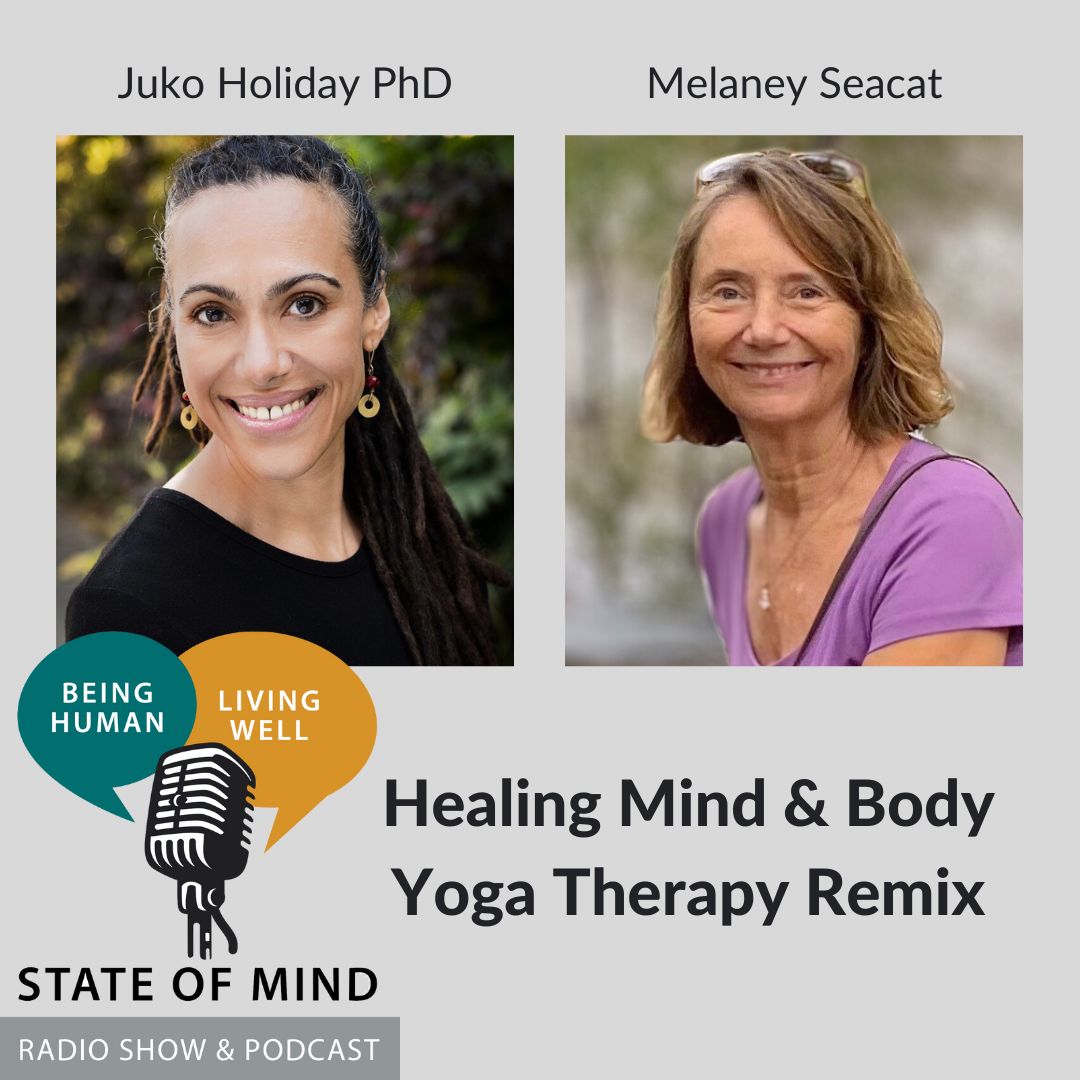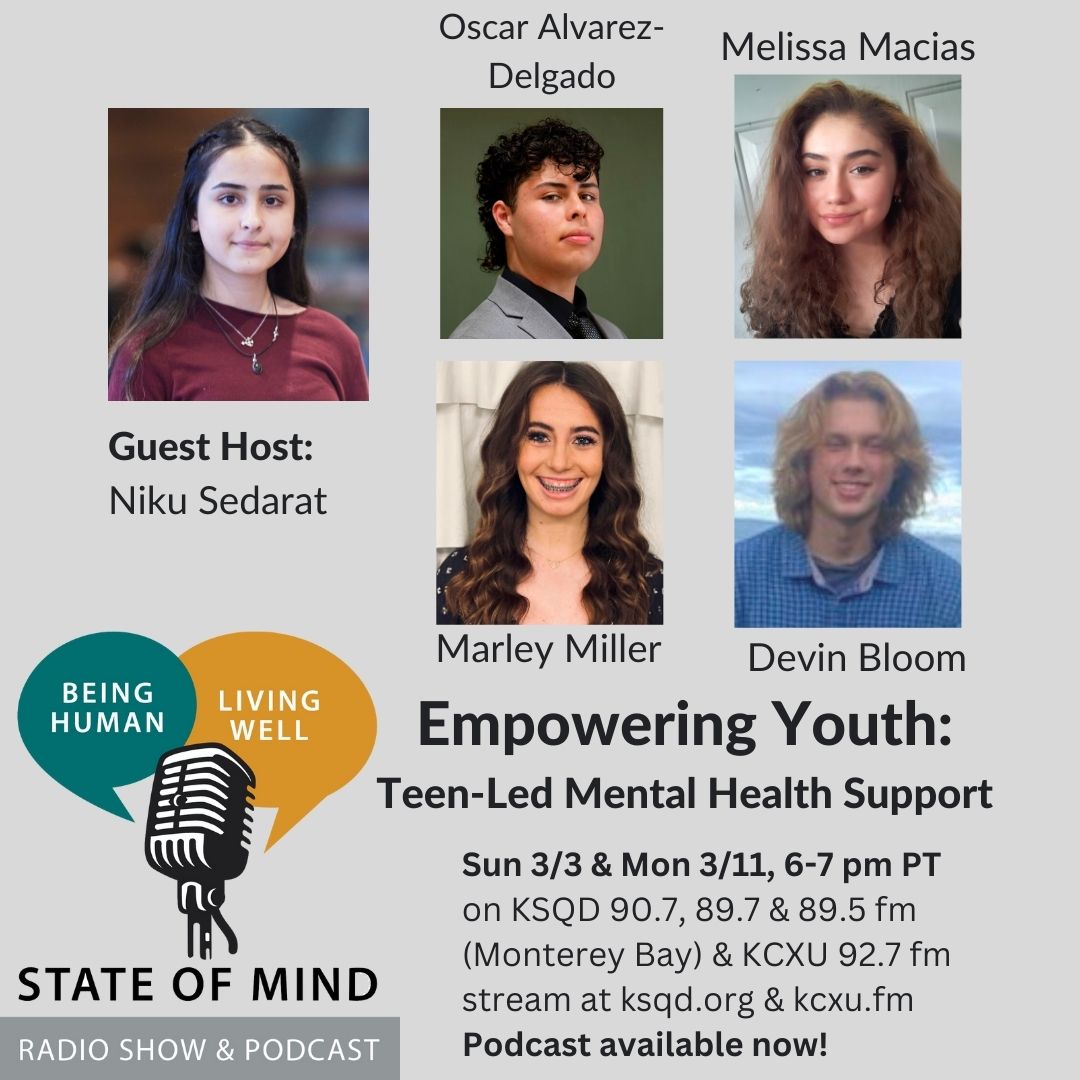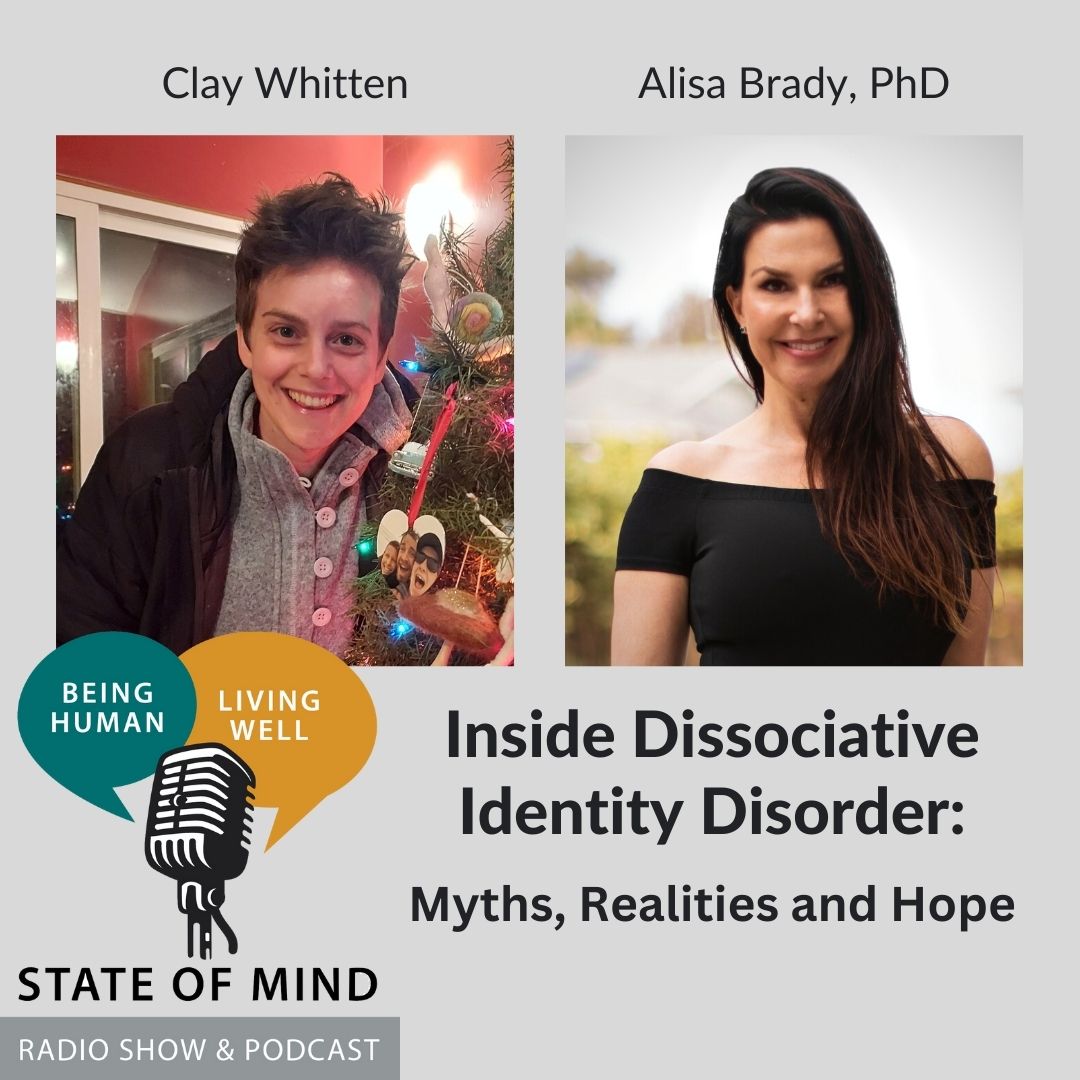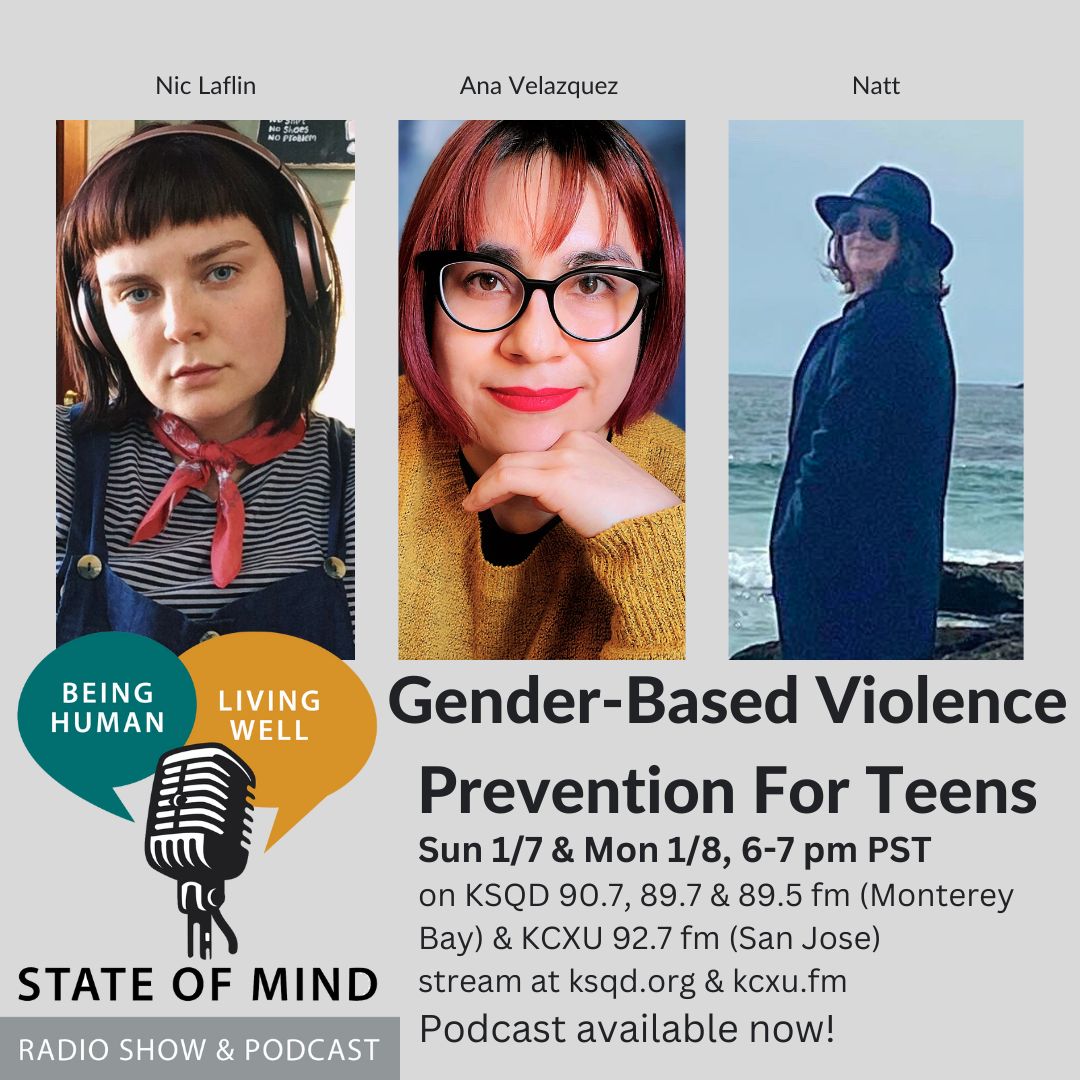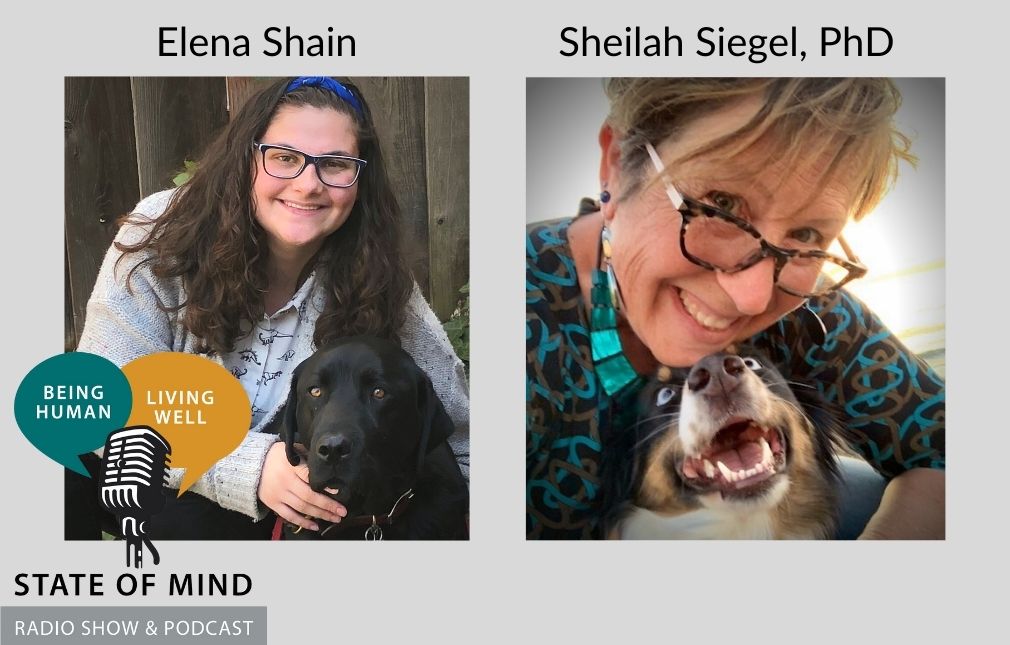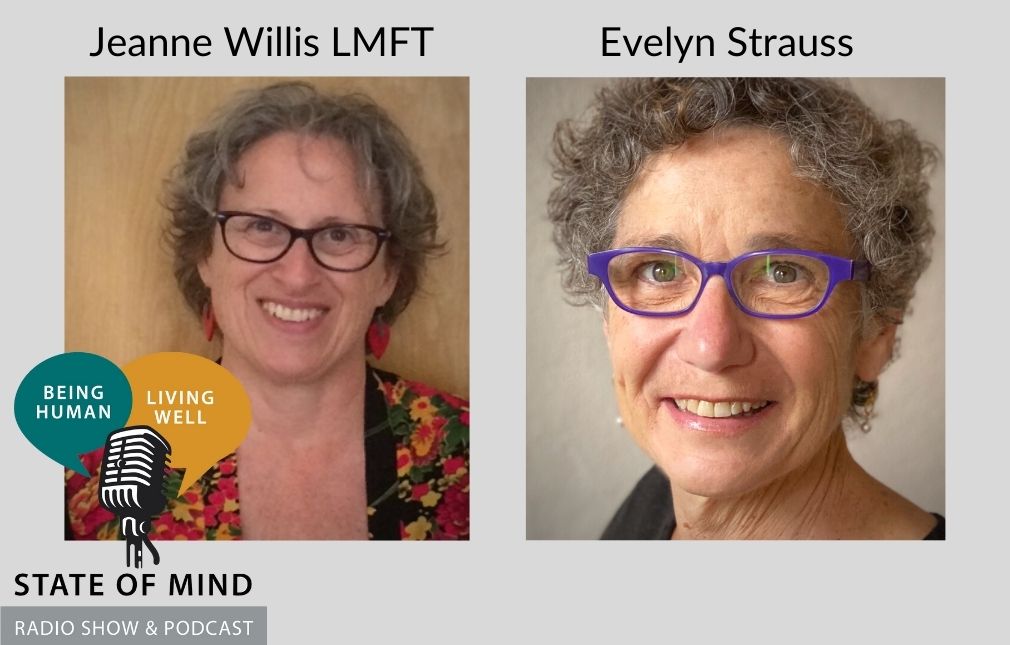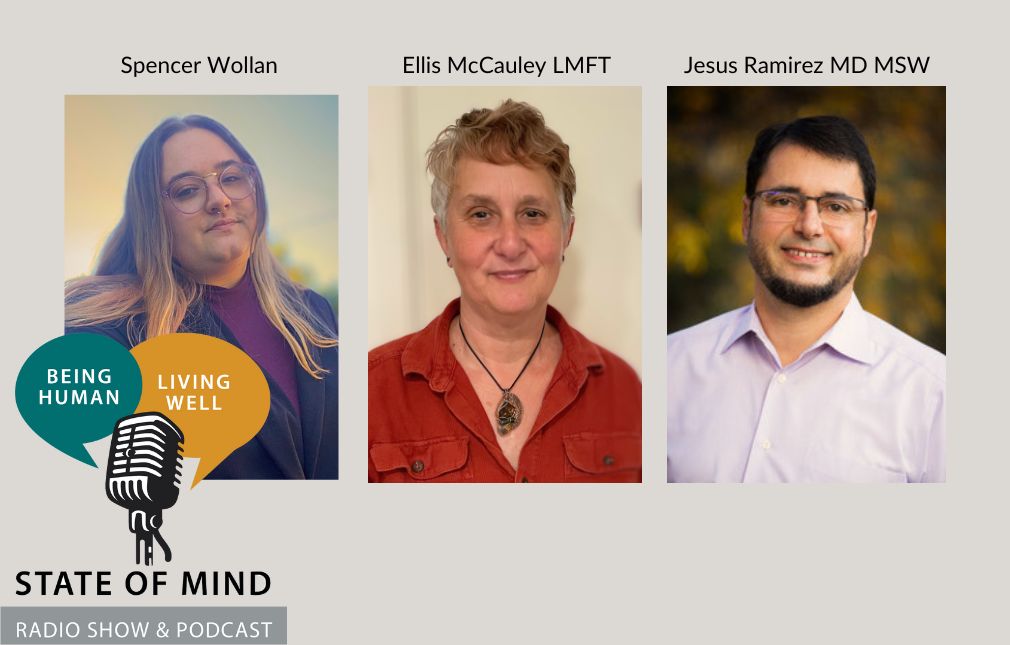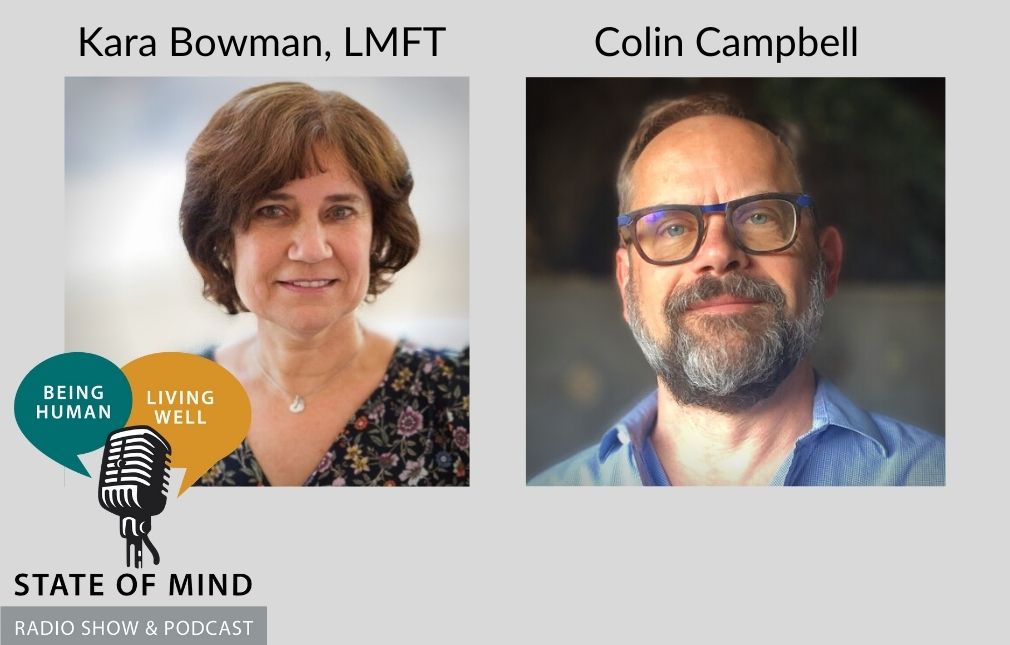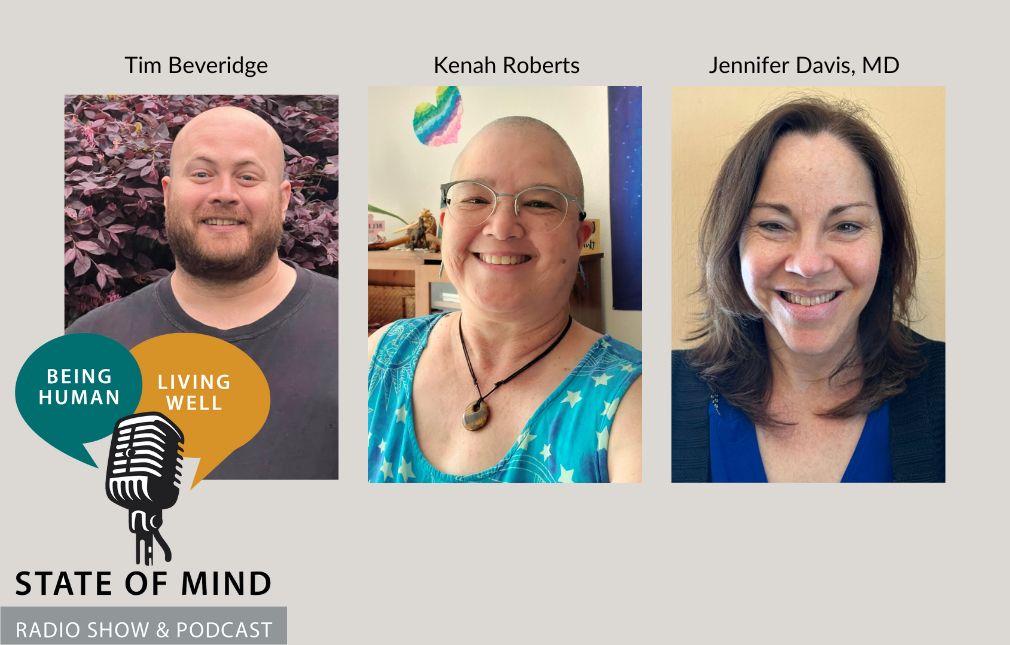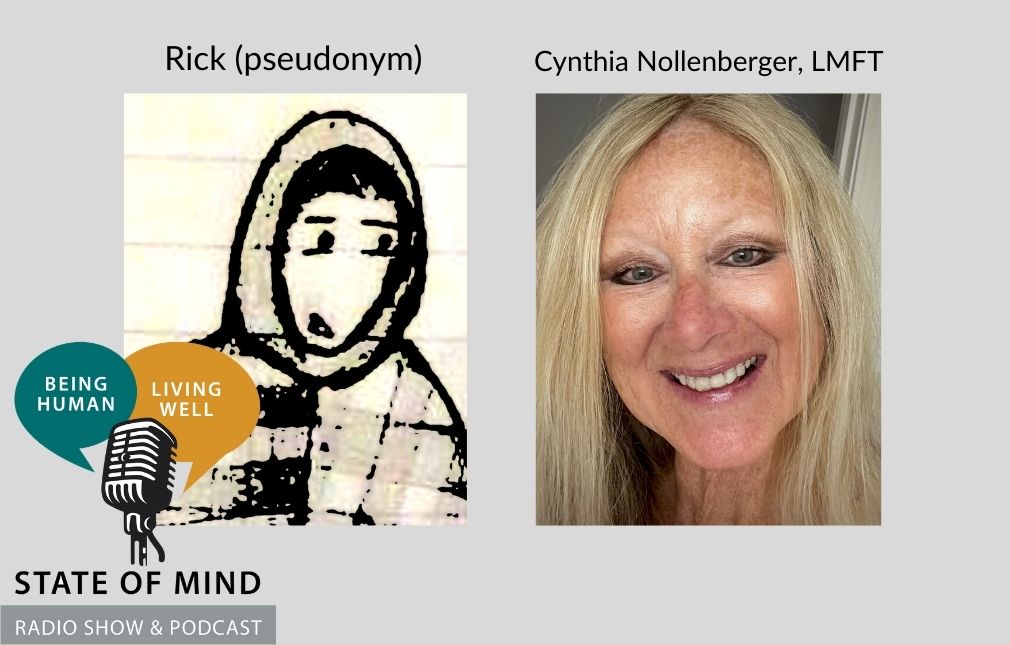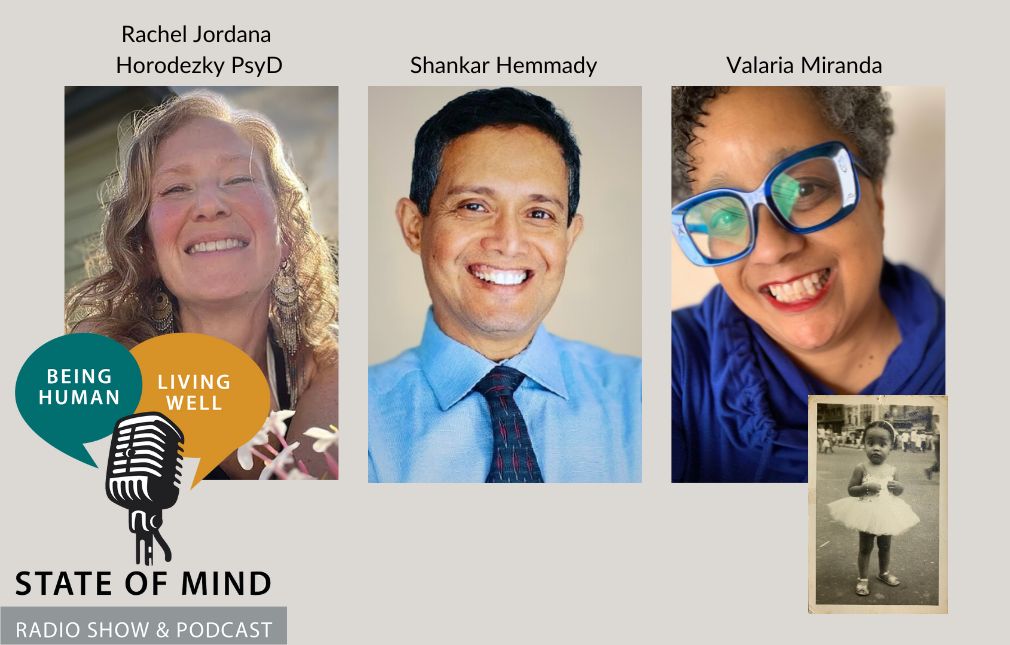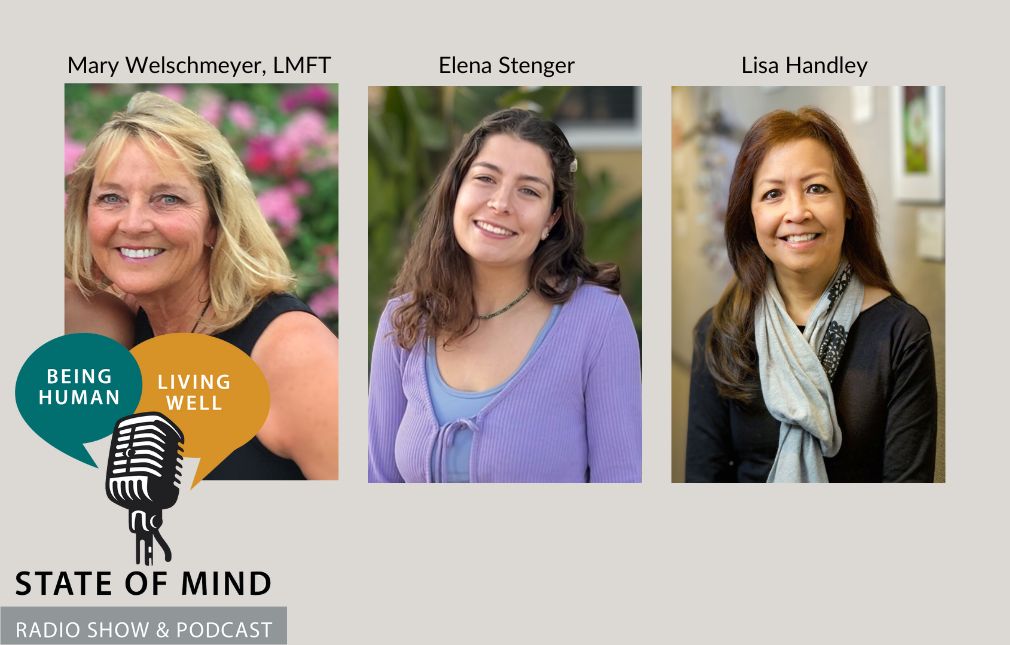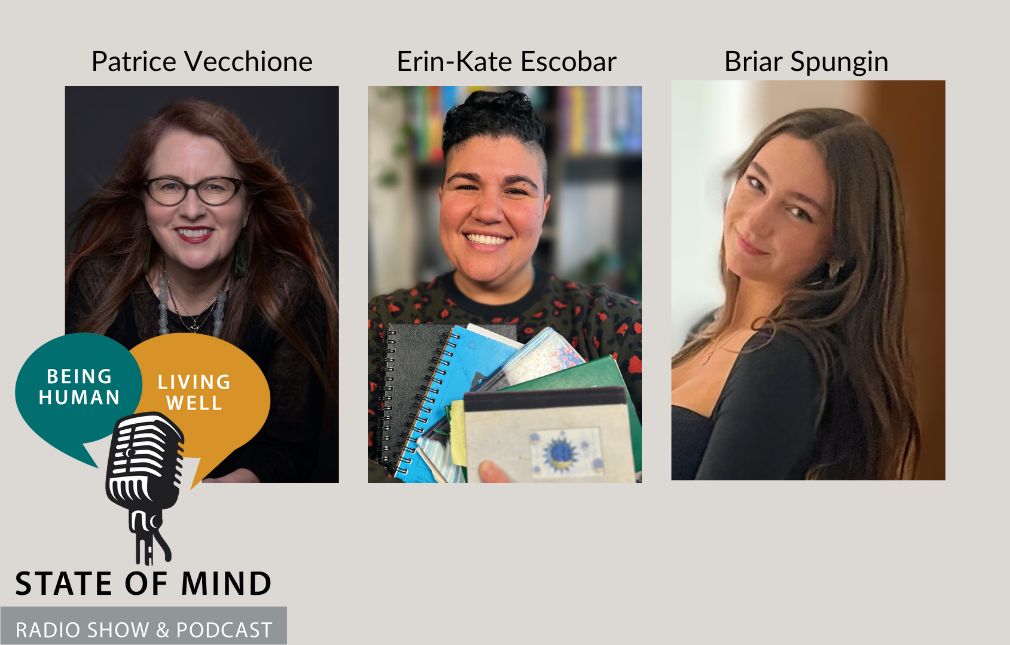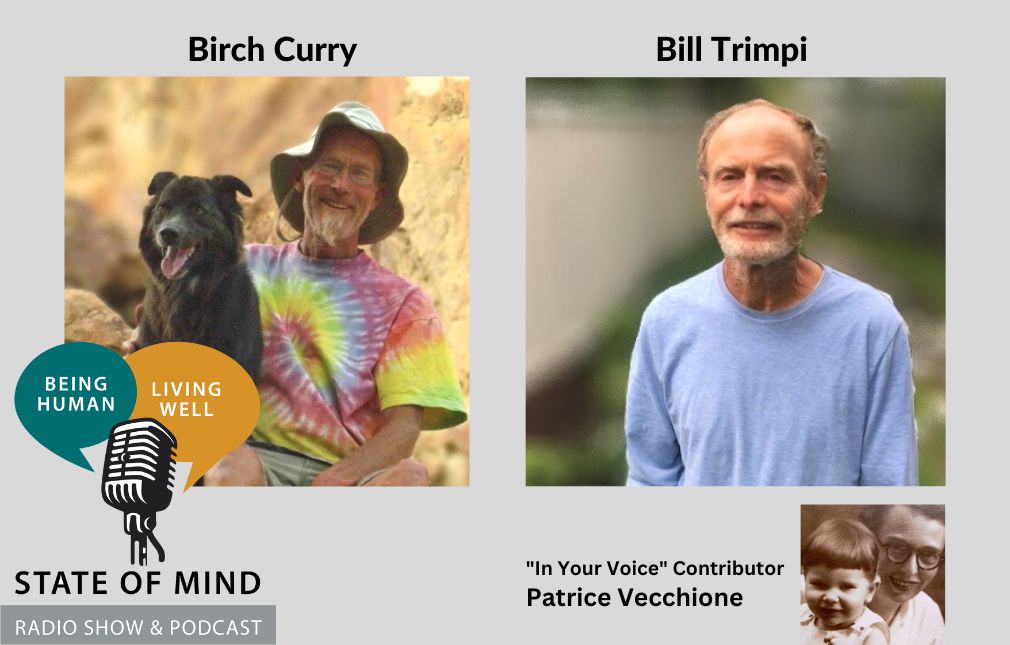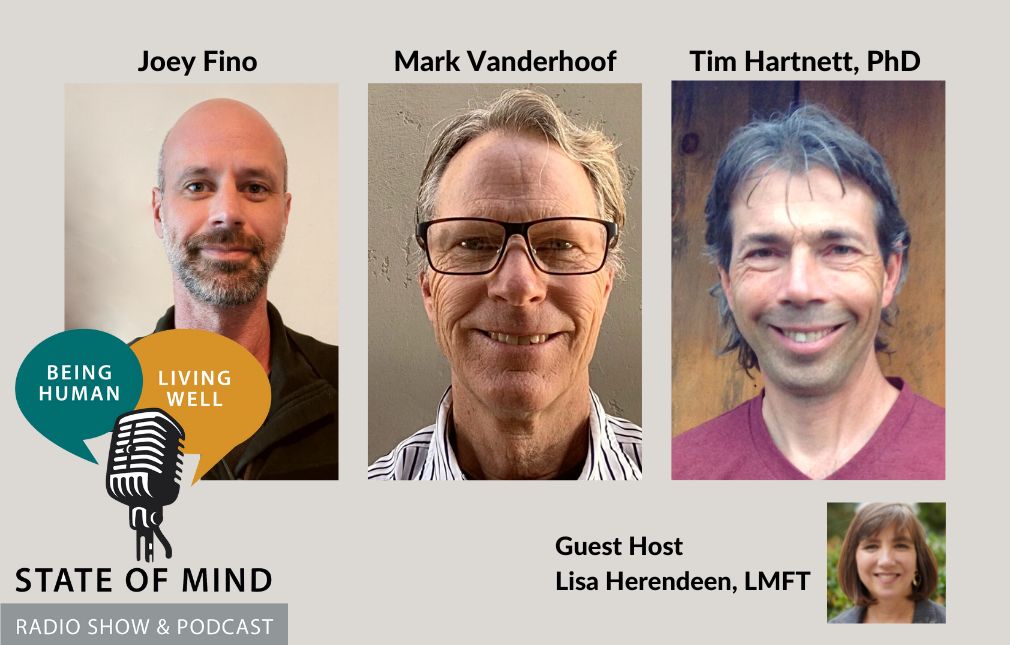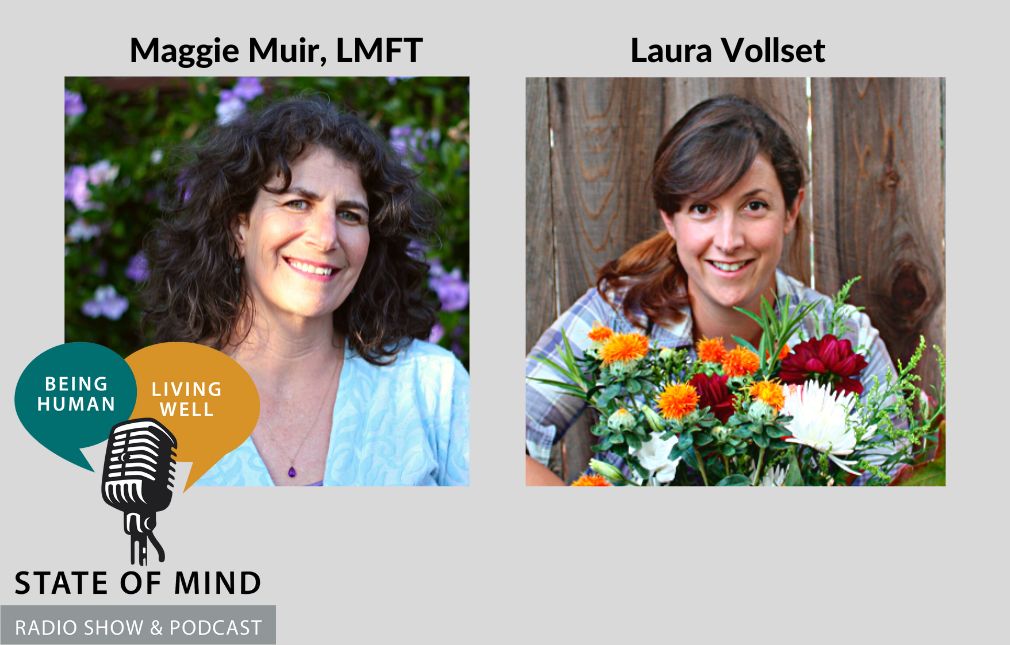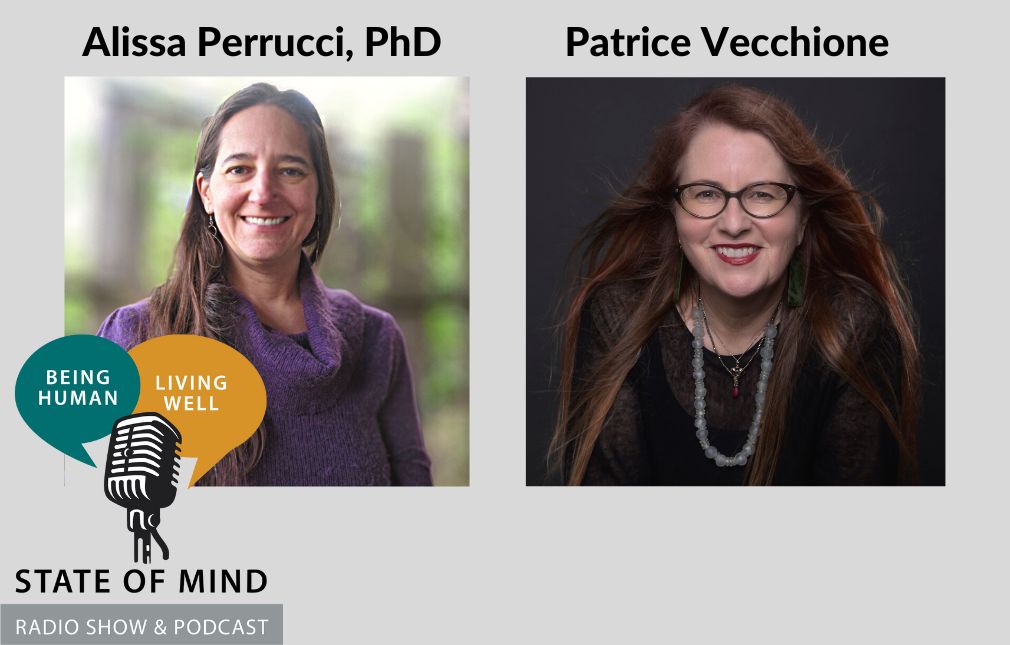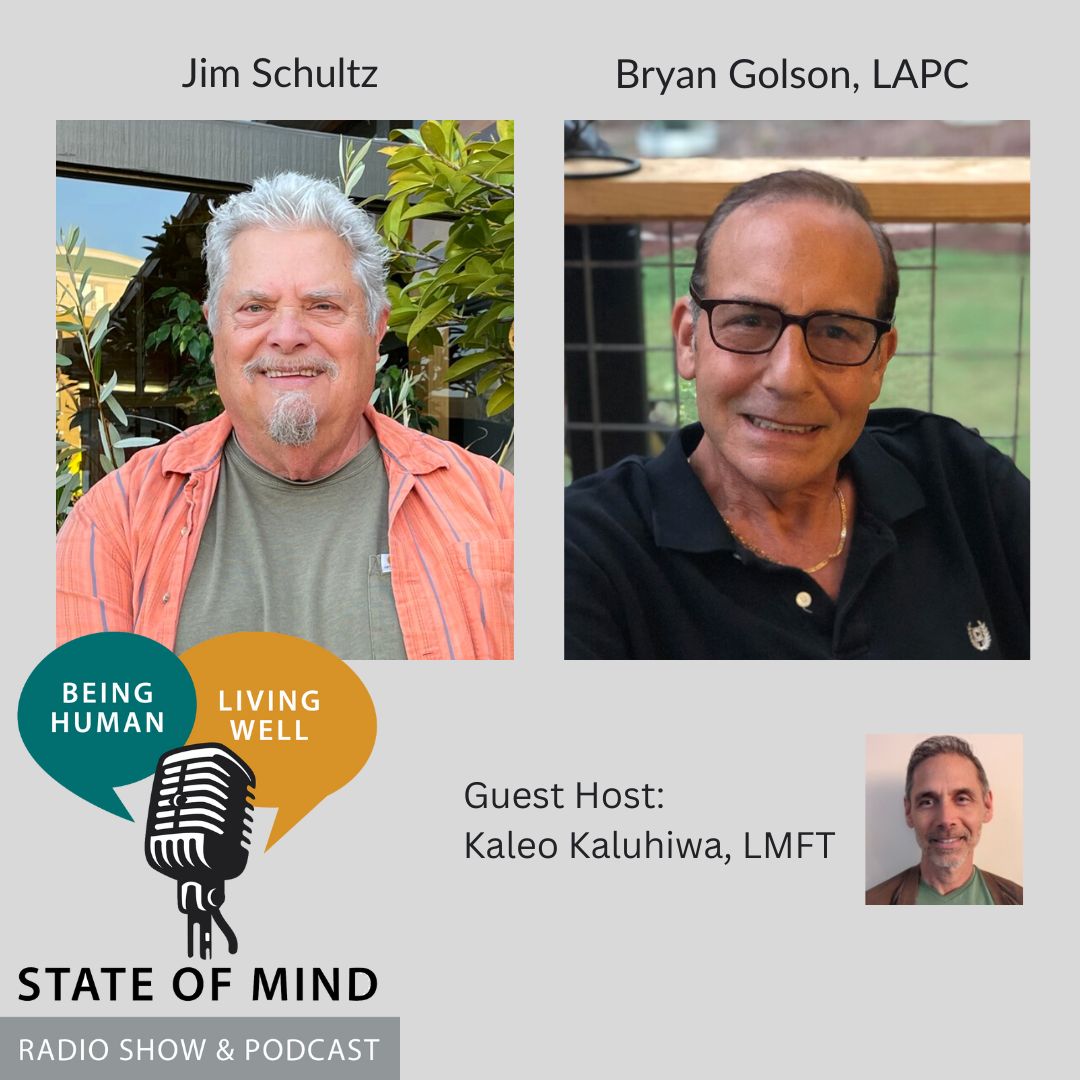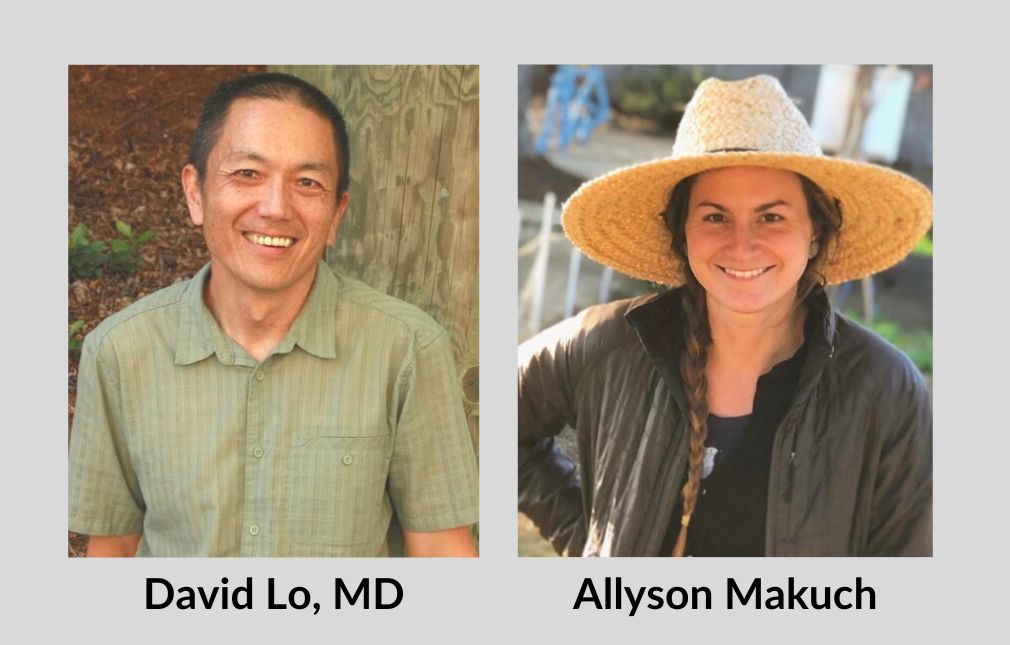Discover State of Mind with Debra Sloss
State of Mind with Debra Sloss

State of Mind with Debra Sloss
Author: Debra Sloss
Subscribed: 7Played: 149Subscribe
Share
Description
Intimate conversations about mental health and wellness with psychotherapist Debra Sloss. Guests share personal stories and hard-earned wisdom from their lived experience accompanied by expert guests sharing their professional knowledge on important mental health topics. Together we’ll explore the intricacies of being human and living well. Join us for new understandings, seeds of hope, and valuable resources. New episodes released the first Sunday of every month. Unique resource lists are posted in show notes for each episode and can be found at www.stateofmindmedia.org.
65 Episodes
Reverse
Episode 65: Join us to explore the growing significance of Yoga Therapy in mental health treatment. With a cultural shift emphasizing the mind-body connection, yoga has become something crucial for holistic well-being. Our guests, including integrative mental health practitioner Dr. Juko Holiday and survivor Melaney Seacat, share insights into its therapeutic benefits that are aiding veterans and individuals like Melaney. Tune in to discover more about this transformative approach.
Episode 64: Dive into the pressing reality of the youth mental health crisis. In this episode crafted by teens, for teens, we explore how youth can lend support to their peers through mental health education, community engagement, and advocacy. Join 17-year-old guest host and mental health advocate, Niku Sedarat, as she leads a discussion featuring four teen guests from diverse Monterey Bay area high schools. Together, they discuss the unique needs of their communities and unveil the many ways in which youth-driven mental health advocacy can spark meaningful change.
Meet our guests Marley Miller, Melissa Macias, Oscar Alvarez-Delgado, and Devin Bloom, as they courageously share their personal journeys and innovative approaches to promoting mental well-being among their peers.
Episode 63: Delve into the intricate world of Dissociative Identity Disorder (DID), a widely misunderstood psychiatric condition rooted in profound childhood trauma. Join clinical psychologist and trauma specialist Dr. Alisa Brady as she sheds light on DiD and the serious mental health symptoms associated with it. DID survivor Clay Whitten shares their firsthand experiences and the transformative impact of Internal Family Systems (IFS) therapy on their journey towards healing. Gain insights into the complexities of DID, and unravel the layers with experts who bring compassion, understanding, and hope to this topic.
Episode 62: Gender-based violence is an umbrella term that includes the more familiar descriptors of domestic violence, intimate partner violence, sexual violence, and dating violence. It’s a significant problem across our country and around the world, impacting one in every three American females under the age of 18. Teens and college students are particularly vulnerable. For survivors, the mental health impacts are substantial and can include an array of symptoms. Join us to learn prevention tips and prepare yourself to help stop such violence.
Episode 61: At present, nearly one in three adolescents will meet criteria for an anxiety disorder by the age of 18. In this episode, we’re joined by college student Elena Shain, who courageously shares her story of navigating severe anxiety since childhood. She tells how, together with her family and her service dog, she has gained knowledge about herself and developed skills to better manage her life. Also with us is psychologist Sheilah Siegel, Ph.D., who provides information about teen anxiety symptoms, coping strategies, treatment approaches and shares resources.
Episode 60: Anorexia Nervosa is a dangerous eating disorder and the deadliest mental illness, second only to opioid overdose. Eating disorders affect people of any age, race, gender, and sexual orientation and they are common. Joining us for this inspiring story of recovery is biomedical writer Evelyn Strauss and psychotherapist Jeanne Willis, LMFT. Evelyn shares how she worked her way out of the physical and psychological manifestations of anorexia nervosa through a self-created and unconventional path. Jeanne, an eating disorder specialist, dispels commonly held myths, discusses the types of treatments available, and shares resources that support recovery.
Episode 59: In recent years, there’s been growing interest in the role that psychedelic drugs, including ketamine, can play in treating mental health conditions. In this episode, we discuss a new treatment approach called Ketamine-Assisted Psychotherapy (KAP) that is a promising treatment for patients with PTSD, anxiety, and other mental health conditions. Joining me for this conversation is Spencer Wollan, who experienced “life changing benefits” from KAP, along with medical doctor, social worker, and ketamine prescriber Dr. Jesus Ramirez and psychotherapist Ellis McCauley.
Episode 58: How do parents go on after their child’s death? In this episode, we talk with father and author Colin Campbell about how he’s finding ways to live “with hope and purpose” after his two teen children were killed in a car crash caused by a drunk driver. Two other parents contribute stories about their grief after losing children to suicide and overdose. Also with us for this conversation is psychotherapist, grief specialist, and writer Kara Bowman. Join us for this honest, tender, and surprisingly hopeful conversation.
Episode 57: Psychotic symptoms, often collectively referred to as psychosis, can be part of many illnesses and are when the brain has trouble distinguishing between what is real from what is not. Psychosis is a symptom, not an illness, and as many as 3 out of every 100 people will experience an episode of psychosis in their lifetime due to either a medical or a mental health condition. It is common for a person to experience psychotic symptoms for more than a year before receiving treatment. Early treatment of psychosis is critical because it often means better recovery. Understanding more about and learning to recognize psychotic symptoms means being in a better position to help those experiencing psychosis get the appropriate care sooner. Joining me for this conversation is Dr. Jennifer Davis, a Double Board Certified General and Child-Adolescent Psychiatrist and two guests who are both in recovery from their mental illnesses, peer counselor Tim Beveridge and peer specialist Kenah Roberts.
Episode 56: About one third of people who have a mental health condition also develop a substance use disorder at some point in their lives. In this episode, we discuss the complicated intersection of these problems, a combination that currently afflicts nearly 17 million Americans. Joining us for this conversation about co-occurring disorders is psychotherapist Cynthia Nollenberger and artist-musician Rick, who shares about his journey to mental health recovery and, eventually, to substance use recovery. This 2019 interview has been re-edited with new material and personal stories added.
Episode #55: People have been moving their bodies through dance for thousands of years, and there’s a reason. Movement and dance offer many benefits for mental health and brain function. Joining me for this conversation about the therapeutic benefits of movement and dance are Dr. Rachel Jordana Horodezky, a licensed psychotherapist, yoga instructor, and dance instructor; entrepreneur and dancer Shankar Hemmady; and arts administrator and lifelong dancer Valéria Miranda.
Episode #54: Artistic self-expression of any kind, even making “ugly" art, can help us process emotions and create a profoundly healing process. We’re joined by psychotherapist, art therapist, and registered nurse Mary Welschmeyer, artist and cancer survivor Lisa Handley, and childcare professional and abuse survivor Elena Stenger to discuss how accessing their creative process has catalysed their healing and supplied ongoing support for mental wellness.
Episode #53: Writing and telling our stories can be powerfully healing. To honor National Poetry Month, we look at how the simple process of writing or journaling can be used to support mental health and wellness and lead to healing. We’re joined by writer, poet and teacher Patrice Vecchione and two of her former writing students, diversity trainer Erin-Kate Escobar and high school student and writer Briar Spungin. This is the first in a two-part series on creativity and wellness.
Episode #52: We’re joined by ACA Program participants Bill Trimpi and Birch Curry to discuss their childhoods in dysfunctional families, the lasting mental health impacts of those experiences, and how they found support and growth in the 12-step program Adult Children of Alcoholics & Dysfunctional Families (ACA). Community member Patrice Vecchione tenderly describes the confusion and heartbreak of growing up with a mother with alcohol addiction.
Episode #51: People, including men, are utilizing therapy now more than ever. We’ll explore what therapy is like for men: the barriers, the benefits and the types available. Guest Host Lisa Herendeen is joined by guests Joey Fino and Mark Vanderhoof, who share their personal experiences of therapy. Also joining us is psychotherapist Tim Hartnett, who describes how therapeutic work, in and out of the therapy room, can help men live fuller, happier lives with greater connection to those they love and care about.
Episode #50: We’re joined by Laura Vollset & Maggie Muir to discuss Perinatal Depression & Anxiety (PPD). While this is one of the most common complications of pregnancy, it is often unrecognized and under-diagnosed. Laura shares her experience of having had debilitating PPD after the birth of her twins. She sought treatment, found support, and wended her way to back to wellness and joy in parenting. Maggie Muir, a Licensed Psychotherapist, Board Certified Lactation Consultant, and Perinatal Support Group Leader explains what PPD is, who is at risk, and how and where mothers and family members can get help.
Episode #49: This episode features a collection of nuanced and highly personal stories about making reproductive decisions and how these choices impact mental health. Some of what you’ll hear may be difficult, but we urge you to listen and challenge yourself to hold the complexity, the diversity, and the common humanity in each tale. Our feature story is by writer, teacher and poet Patrice Vecchione. Joining us to listen, reflect on, and respond to these important reproductive health stories is Alissa Perrucci, PhD, the Counseling & Administrative Manager at the Women's Options Center at San Francisco General Hospital. More information and resource list here: https://ksqd.org/reproductive-freedom-essential-for-mental-health/
Episode #48: While Human Immunodeficiency Viruses (commonly called HIV and AIDS), has been transformed from a deadly disease to a chronic, manageable condition, there is still stigma, discrimination and misunderstanding that can have a significant impact on the mental health of those living with it. Guest host and psychotherapist Kaleo Kaluhiwa is joined by mental health counselor Bryan Golson to discuss the unique and complex physical and mental health needs of those living and aging with HIV. Guest Jim Schultz also joins the conversation to share his experience of living through the AIDS epidemic and explains how he has learned to manage and even thrive with his condition over the last 30+ years.
More information and resources here: https://ksqd.org/aging-with-hiv/
Episode #47: To honor Mental Health Awareness Month, we’re turning our attention to bipolar disorder, a serious mental health condition that causes extreme mood swings. If not treated and managed, bipolar disorder can be dangerous and cause great disruption in a young adult’s life. Guest Allyson Makuch shares her experience of living with and managing bipolar disorder throughout her college and graduate school years. University of California, Santa Cruz Director of Psychiatry, Dr. David Lo also joins us to inform us about bipolar disorder and ways to manage it while in college.
More information and resources here: https://ksqd.org/navigating-bipolar-disorder-in-college/
Ep. 46: An inside look at traumatic brain injury, or “TBI,” and how these injuries influence mental health. People of all ages get them in a variety of ways—from sports injuries to car accidents to domestic falls and many of these individuals develop mental health symptoms that can last for months or even years. Our guest and author JoAnne Jones talks about recovering from a severe traumatic brain injury that occurred when she was assaulted and robbed. Also with us is rehabilitation and physical medicine specialist Dr. Jennifer Yu who shares information about the mental health symptoms, treatment approaches, and recovery strategies associated with mild to severe traumatic brain injuries.


